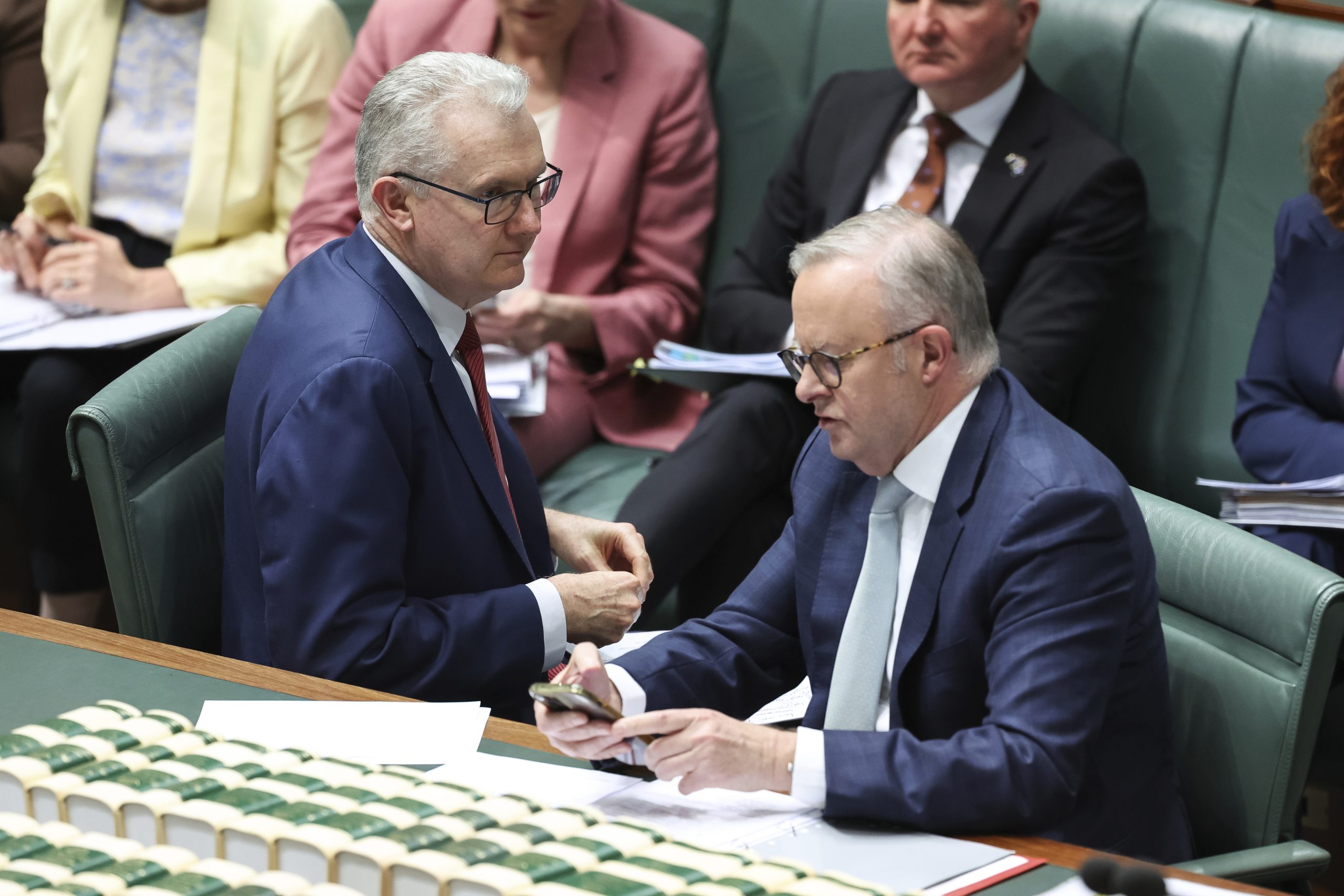After a long delay and widespread protests over the weekend, the federal government has unveiled its permanent migration target for the current financial year.
Immigration and Home Affairs Minister Tony Burke announced today the 2025-26 target would remain at 185,000 – staying, as expected, at the same level as 2024-25.
“(The decision) follows consultation with the states and territories, which recommended maintaining the size and composition of the program, with a focus on skilled migration,” a short statement from Burke’s office said.
READ MORE: Neo-Nazi arrested outside court hours after crashing media conference

“The Department of Home Affairs has been processing visas based on last year’s level, so there has been no disruption to the delivery of the program.”
This year’s target was delayed – the 2024-25 figure was published in May 2024 – and follows large anti-immigration protests around Australia over the weekend, which were attended by groups of neo-Nazis and white supremacists, some of whom addressed the crowds.
Prime Minister Anthony Albanese yesterday said, while there were fair-minded people who attended the rallies, the overall sentiment didn’t reflect the views of most Australians, adding “we’re enriched by the diversity in this country”.
“Of course, there’s always good people will turn up to demonstrate their views about particular issues,” he told the ABC.
READ MORE: It’s magpie swooping season again. Here’s how to avoid getting injured

“But what we have here is neo-Nazis being given a platform. That’s what we saw on the weekend.
“And the tone of course of much of the rallies… unfortunate is the best way that you could put it, but hateful in some of the extreme examples.
“And the idea that an open neo-Nazi was able to give a speech from the steps of the Victorian parliament is something that isn’t the Australian way.”
Independent senator David Pocock has said a lack of leadership from the government on the topic of migration has left a void, allowing extremists to hijack the conversation.
“This allows… white supremacists and neo-Nazis to prey on people’s genuinely held concerns,” he wrote in the Australian Financial Review this morning.
“And none of us want that, whether we live in the suburbs, regions or inner cities. We want safe streets, opportunities for our kids and a country where we can thrive.
“Last weekend’s protests were racist and violent, but they were also entirely foreseeable.”
READ MORE: AI-powered cameras to start fining drivers in one state from next month

Net overseas migration – which is different to permanent migration as it includes the likes of international students, who leave after a set time – is currently above pre-pandemic levels, but is declining from the record highs that immediately followed the huge drop caused by COVID-era restrictions.
It is forecast to drop further, back to pre-pandemic levels, in the next two years.
“We have seen a reduction in the net overseas migration from the peak of COVID levels, down 37 per cent, particularly as a result of a number of things, but including sustainability around student visas,” cabinet minister Amanda Rishworth told Today this morning.
“We continue to work on this.”
One of the issues raised by protesters over the weekend was the housing crisis.
However, economists and other industry experts have consistently outlined that a lack of supply is the cause – not immigrants.
Indeed, Australia actually requires skilled migrant workers in the construction industry to build enough homes to alleviate the crisis.
“From social and community housing, rental property and owner-occupiers, there is a common restraint – supply,” Master Builders Australia chief executive Denita Wawn said in April.
“Harnessing the skills of overseas-trained workers is critical to addressing Australia’s housing crisis,” she added.
DOWNLOAD THE 9NEWS APP: Stay across all the latest in breaking news, sport, politics and the weather via our news app and get notifications sent straight to your smartphone. Available on the Apple App Store and Google Play.